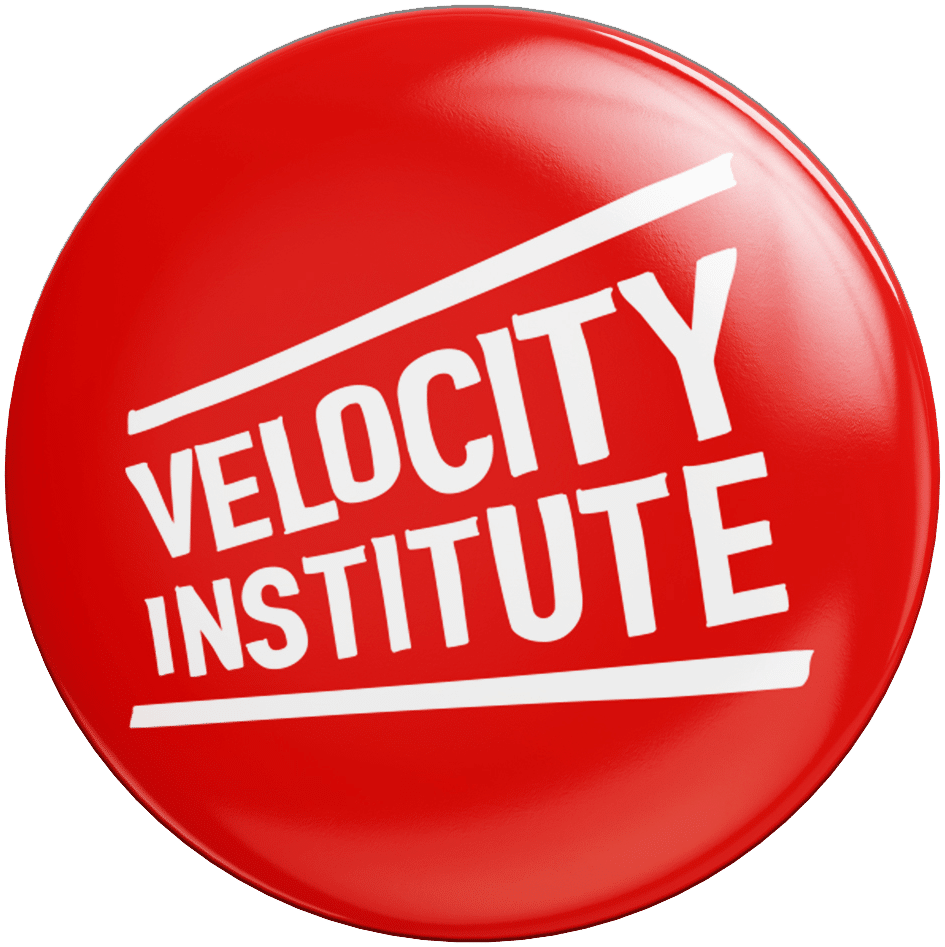
Luke Rauch was 19 years old and putting in another eight-hour graveyard shift in a steel mill, swinging a sledgehammer in sweltering temperatures to pound molten metal. It wasn’t a typical—or easy—job for a college student on summer break, but for Rauch it was a life-changing one because the steel ended up shaping him as much as he shaped the steel.
Fast forward 25 years and Rauch no longer hammers steel. Now, he is senior vice president and chief merchandising officer at Walgreens in charge of the retailer’s merchandising strategy. The lessons learned during that long, hot summer at the mill have never left him, but the job was hardly his first introduction to hard work.
From a young age, Rauch hustled and knew the meaning of an honest day’s work. His parents made sure of it.
Rauch describes his parents, Rick and Carol, as self-made. Rick is a tinkerer and a voracious learner. An electrician by trade, he ultimately became a self-taught engineer who earned an associate degree while working at the mill, and ended up running the engineering department, that is, when he wasn’t teaching himself to build and program computers. Carol balanced being a stay-at-home mom with her entrepreneurial side as a beautician, building a business from scratch and running it out of the family home. Later, she started a medical transcription company.
Luke was a pre-teen entrepreneur, growing strawberries and zucchini in his parents’ garden with his sister, then selling them to their mom’s beauty clients. He taught himself to build computer workstations at age 11 and sold them to his friends. And in his teen years he sold shoes at Finish Line, where he developed into an authentic sneakerhead who may or may not have purchased more pairs than he sold.

“We didn’t grow up with a lot, we didn’t have a lot of money, but my parents worked so hard to give me and my sister a better life. And their work ethic rubbed off on me,” says Rauch.
Pure Michigan
Luke Rauch isn’t simply from Michigan, he is of Michigan.
Born and raised in Temperance, 50 miles south of Detroit, and just a few miles from the Ohio border, Rauch has bled Michigan blue since he can remember. A hardcore sports fan, Rauch’s affinity for the University of Michigan was influenced by their teams from a young age. He grew up in the era of the Fab Five, the school’s brash, iconoclastic, trend-setting basketball team in the early 1990s, and the Wolverines’ football team that won a national championship during his senior year of high school.
When he was ready to choose a college, he didn’t need to give the process much thought because he’d already known his destination for a lifetime. As it turns out, the University of Michigan wasn’t just a school he attended—it’s where he earned both his BA in sociology and political science, and MBA at the Stephen M. Ross School of Business. It runs much deeper for him.
During the holidays he refuses to wear traditional colors of green and red because they remind him of the colors of Michigan’s bitter rivals Michigan State and Ohio State. He casually drops the status of the Wolverines’ football team into keynotes and town hall addresses. And he can often be seen wearing Michigan attire at work, like his favorite pair from his shoe collection: maize and blue Nike Dunks.
After his undergrad years and six years in the workforce, he returned to the Ross School of Business in 2008. There, he met his future wife, Jennette, who was also in the MBA program. The uniqueness of the place, apparent to him as an undergrad, became glaringly clear as an older adult. For Rauch, it comes down to a common set of values around family and partnership that define Michigan as a school and as a state.
“The most important lessons I learned in school were on the EQ side rather than the IQ side. I learned how to interact with people on a personal level. I learned how to build relationships. I learned the importance of teamwork. I learned a mindset that emphasizes an output created together becomes bigger and more powerful than an output created individually. It’s made such a difference in my career.”
Lessons from the mill
Rauch has worked plenty of different jobs on his way to becoming Walgreens chief merchandising officer. But he estimates none of them was as important as that summer he spent at the steel mill.
He was second torch. That was the name of the job that required him to manually and repeatedly pound serial numbers into molten steel. He was assigned the swing shift, working seven straight days before he earned a day off. Then seven straight afternoons before another day off. Then seven straight midnights before finally earning the luxury of a four-day weekend. So, while his friends were out enjoying the splendor of a Michigan summer, Rauch labored in his protective gear swinging a sledgehammer in ungodly conditions for days at a time.
“That was definitely a formative experience,” he recalls. “It was the first time I was exposed to a job that’s noble and means something, but man, it was tough. I realized pretty quickly that I didn’t want to do that the rest of my life, so it motivated me to work even harder when I went back to school.
“What makes me laugh about the experience now—and I didn’t find this out until just recently—is my dad told the guys at the mill, ‘Give him the worst job you can.’ So, the engineering intern, who was a college student like me, was walking around in his business casual clothes taking it easy, and I’m grinding and pounding steel in my spacesuit in 150 degree temperatures. But, looking back at what that job taught me, I wouldn’t have traded places with him.”
A coach at heart
All things Michigan share a spot with sports at the core of Rauch’s self, and he considers himself a coach at heart, whether that’s leading his team at Walgreens or one of his kids’ sports teams. That mentality goes back to his college days, but it’s also been influenced by legendary coaches of his favorite teams, particularly those in sports like basketball, football and hockey that require complementary skills to blend and harmonize to achieve success. Rauch believes the qualities that make a great coach are the same qualities that make great leaders.
“I admire coaches who are able to manage the strengths and unique characteristics of the individual members of their teams to achieve something greater than the sum of its parts,” Rauch says. “They see their players as human beings first, identifying what they do well, helping them understand their roles, then motivating them psychologically to bring out their best.”

Building around complementary strengths is how Rauch has built his own team at Walgreens, particularly those whose strengths enhance his weaknesses, so everyone has the opportunity to play off each other. Just like a championship team.
“I have a belief, and this comes from both sports and my professional career, that everybody’s good at something. It’s my responsibility to figure out what that is, then set them up to be great at those things. To me, that’s the most important thing you can do as a leader.”
Leading Walgreens merchandising now and into the future
Rauch is at the helm of merchandising at a transformative period in Walgreens long history, as its strategy shifts to becoming a healthcare company. What role will merchandising play in a company looking to mix its 122 years of health and wellness expertise with a drive to offer industry-best convenience? Rauch sees a natural fit.
“Walgreens can be the most convenient health and wellbeing retailer in the U.S.,” he says. “And that means the offer and the things we emphasize have to support that. Whether it’s healthy food, skin care or core OTC medicine, I believe merchandising has to lead the way. We’ve got to drive our business to where the rest of the company’s going so we can arrive at the same time.”
According to Rauch, for Walgreens transformation to truly be successful, retail and pharmacy need to be integrated, so he’s aligned the merchandising strategy toward that end.
“I don’t think of us as separate entities,” he says. “We’re one Walgreens in the eye of our consumers. We sell products. We fill prescriptions. Maybe we have primary care clinics located on premise. But we’re one entity, so we need to act that way.”
More convenient. More efficient.
Perhaps it’s the time he spent in an earlier life as a business consultant, but Rauch is obsessed with efficiency, not simply for efficiency’s sake, but with the specific end goal of creating an unbeatable customer experience that ultimately helps promote better health.
He is bullish on the potential of Walgreens convenience options like one-hour delivery through partnerships with DoorDash and Uber, round-the-clock delivery, and 30-minute curbside pickup that offer products and services in ways that are the most convenient in the market. To execute flawlessly, efficiency is king.
“We have nearly 9,000 locations, so we can get health and wellbeing items in consumers hands in multiple ways that work best for them—whether that’s picked up in the store or delivered to their homes—faster than anybody. I look at it as having 9,000 distribution centers in neighborhoods around the country. That’s unique to Walgreens.”
Owned brands as an innovation pipeline
Prior to his current role, Rauch held several other titles in his eight-year Walgreens tenure, including chief of staff to Walgreens Boots Alliance CEO Roz Brewer, group vice president of customer experience and general manager of Walgreens owned brands for six years, and senior director of U.S. insights. He melds his experiences and learnings from those roles to shape a strategy that places a big bet on the potential of owned brands in Walgreens merchandising mix.
The Walgreens owned brand proposition begins with a portfolio of products that feature a consistent blend of reliable quality at low prices across a breadth of offerings. But to Rauch, those are table stakes. He sees an opportunity to not only differentiate owned brands from private label brands, but to innovate while doing so.
“To me, private label implies I’m going to take what somebody else is doing, copy it and stick my label on it,” he says. “Owned brand can be much bigger than private label. There’s a big opportunity for us to move faster and think of owned brand as an innovation pipeline, not just as a copycat pipeline.”

According to Rauch, that direction will be consumer-led. He cites the Walgreens over-the-counter (OTC) consumables portfolio, and its growth of “free-from” products that eliminate artificial dyes and flavors, as a current example of getting in front of a consumer trend and innovating, rather than waiting for consumer packaged goods (CPG) companies to lead.
“We’re making choices to do things that we aren’t doing with CPGs,” he says. “We’re innovating in areas ahead of the traditional CPGs. So, it’s important that we look at our business as an extension of Walgreens, but as an owned brand, not as a private label.”
Luke Rauch, always coaching, sees the pieces in place that will harmonize to make merchandising a vital part of Walgreens future success.
“Our strategy and products and people are all really good, and they can make a difference for Walgreens at this time of transformation. But we intend to be great. That’s my expectation. And we’re already on our way.”
Related Incites
2025 EVENTS
TICKETS, SPONSORSHIPS & EXPO BOOTHS NOW AVAILABLE







